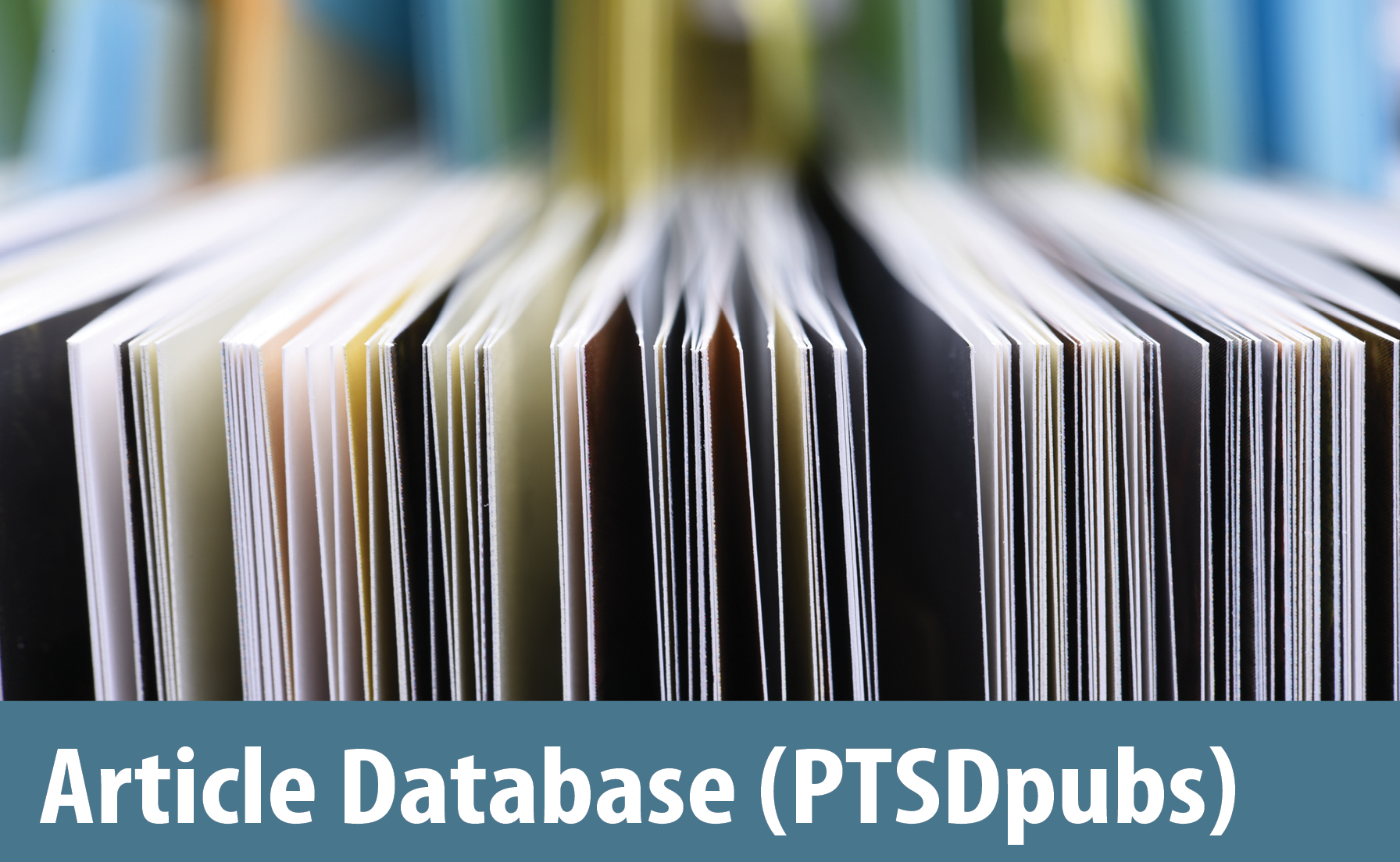Types of Trauma
Types of Trauma
These articles describe traumatic events that are common among people who develop PTSD. Learn about the prevalence and potential mental health impact of these events. Where relevant, implications for clinical care are included. Visit our Disaster Events section for information specific to natural and human-caused disasters, mass violence events, and public health emergencies.
War and Military
- Traumatic Stress in Women Veterans
Discusses stressors faced by women Veterans and reviews research on coping and VA changes in services for women. - Military Sexual Trauma
Discusses the meaning, epidemiology, and psychological effects of military sexual trauma (MST) among men and women and includes information on screening for and assessing MST, as well as available treatments. - Providing Mental Health Care for Those Who Experienced Military Sexual Trauma
Discusses strategies to screen and assess for military sexual trauma (MST), provide evidence-based treatment and share resources with Veterans. - Psychological Trauma for American Indians Who Served in Vietnam
Reviews findings from the Matsunaga Project in regard to readjustment experiences of American Indians who served in the Vietnam War. - Psychological Trauma for Native Hawaiians and Americans of Japanese Ancestry Who Served in Vietnam
Reviews findings from the Matsunaga Project in regard to readjustment experiences of Native Hawaiians and Japanese Americans who served in the Vietnam War. - Peacekeepers and Traumatic Stress
Discusses risk of trauma in peacekeeping situations, prevalence of PTSD in peacekeepers, and risk and resilience factors.
Abuse and Sexual Trauma
- Addressing the Stress and Trauma of Experiencing Intimate Partner Violence
Describes IPV, its prevalence and biopsychosocial correlates as well as explaining best practices for screening, referral and intervention. - Sexual Trauma: Information for Women's Medical Providers
Provides basic information for medical providers working with women who have a history of sexual trauma and includes suggestions on how to prevent distress in patients. - Sexual Assault Experienced as an Adult
Describes sexual assault, epidemiology, the cultural context that may impact the experience of survivors, and the relationship between these events and PTSD, with tips to support mental health providers during assessment of sexual assault and treatment of related mental health concerns. - Child Sexual Abuse
Defines child sexual abuse and includes information about prevalence, effects, perpetrator characteristics and safety advice.
Disaster Events
Access information, guidance, and tools about disaster events. Articles address natural and human-caused disasters, mass violence, and public health emergencies, like a disease outbreak, chemical spill, or radiation event. Download materials for evidence-based models of disaster response, fostering peer support, and self-care during disaster events. There are also evidence-informed strategies to support people in treatment for PTSD during unsettling events.
You May Also Be Interested In

Continuing Education Online Courses
Learn from expert researchers and earn free Continuing Education (CE) credits.

























